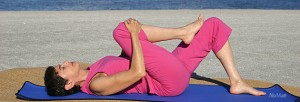Health experts recommend eight hours of sleep a night for most adults. Yet so many of us get fewer than six-and-a-half hours during the work- week. We all love a good night’s sleep. But did you know that not getting one not only makes you dull and stressed, it can also make you pack on the pounds.
Too little physical activity is clearly part of why we’re overweight.
But a lack of sleep may make weight loss and weight control more difficult by altering your metabolism. It may also be changing your eating and exercise patterns.
In a Japanese study, children sleeping less than eight hours a night were almost three times as likely to be overweight.
Lack of sleep may change hormone levels and thus influence weight gain. Higher levels of the hormone insulin have been linked to a shortage of sleep.
Because insulin promotes fat storage and controls blood sugar, extra insulin could make weight loss more difficult.
Studies also show that a lack of sleep leads to lower levels of the hormone leptin, which can cause an increased appetite. Sound familiar?
A third hormone affected by too little sleep is cortisol, linked by research to stress. When people feel threatened or stressed, their cortisol levels rise in a “fight or flight” reaction. In one study, people whose cortisol levels rose highest in response to stress had more waistline fat – and fat at the waist is related to the greatest number of risks for heart disease and other ailments.
If you were wondering where this is all going here it is. Results from a Stanford University study show exercise, particularly aerobic exercise in the late afternoon or right after work can turn this all around.
The physical stress of aerobic exercise produces fatigue and a rise in body temperature. A few hours later, your body temperature drops. That coupled with the fatigue from your exercise triggers your brain to induce a deeper, longer sleep.
What time of day you do is as important as doing it. If you exercise too close to bedtime you may be up for hours climbing the walls. Getting a half hour brisk walk is all it takes.If you belong to a Gym, get there and mix it up on the cardio machines.
Or get yourself a good cardio dance video by a certified instructor. In any case quality zzzzzs equals quality of life and may even increase longevity.
And if you need a little nudge my Holiday Workouts Kit is a Great Buy!

TAKE CHARGE OF YOUR HEALTH! SHED THOSE HOLIDAY POUNDS!
EASE IN, BECOME MOBILE, GET STRONG, LIVE LONG!
For more info on health and wellness programs please visit www.mirabaiholland.com
Follow Mirabai Holland, Certified Health Coach & Certified Exercise Physiologist:













.jpg)
.jpg)

